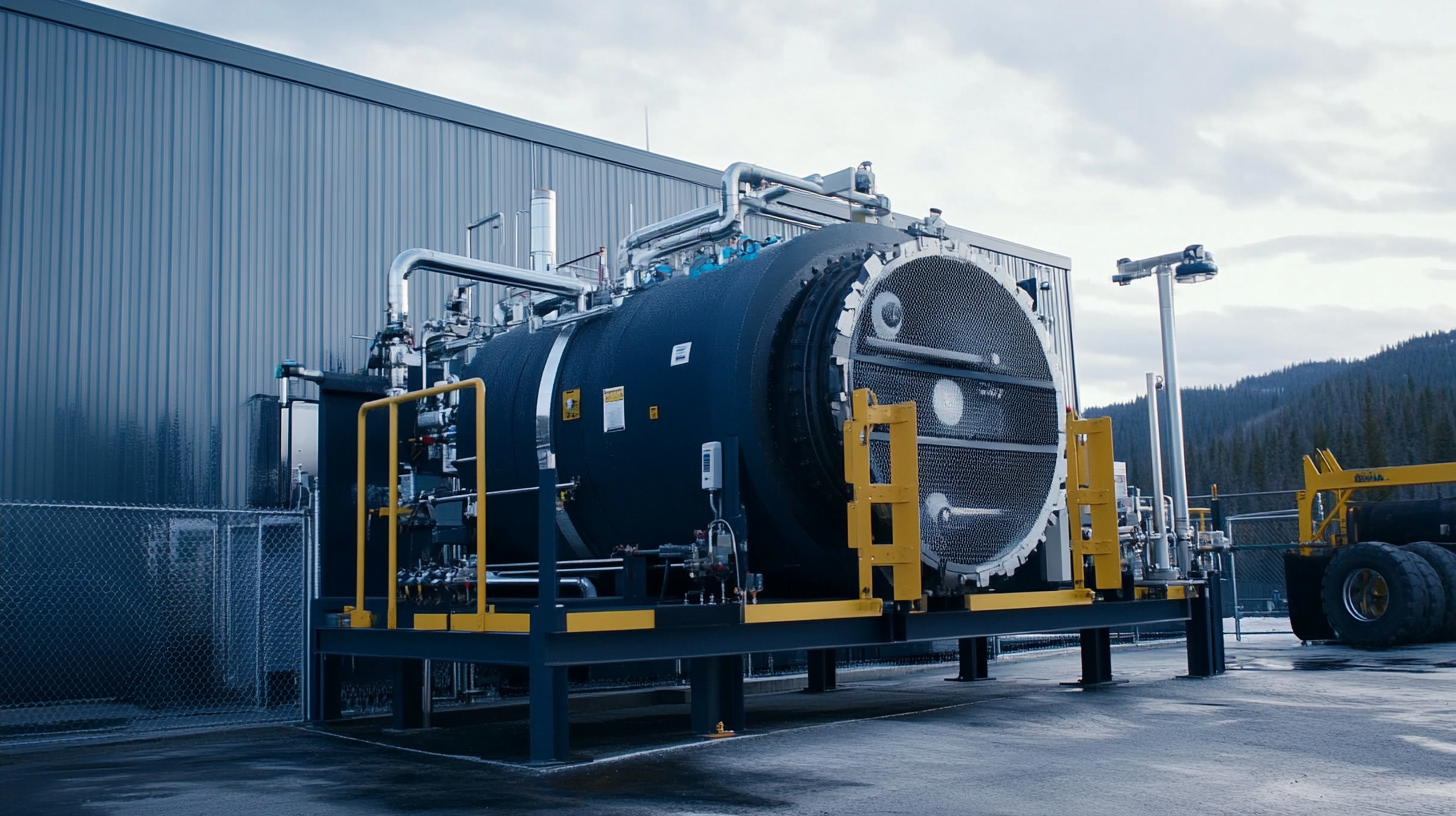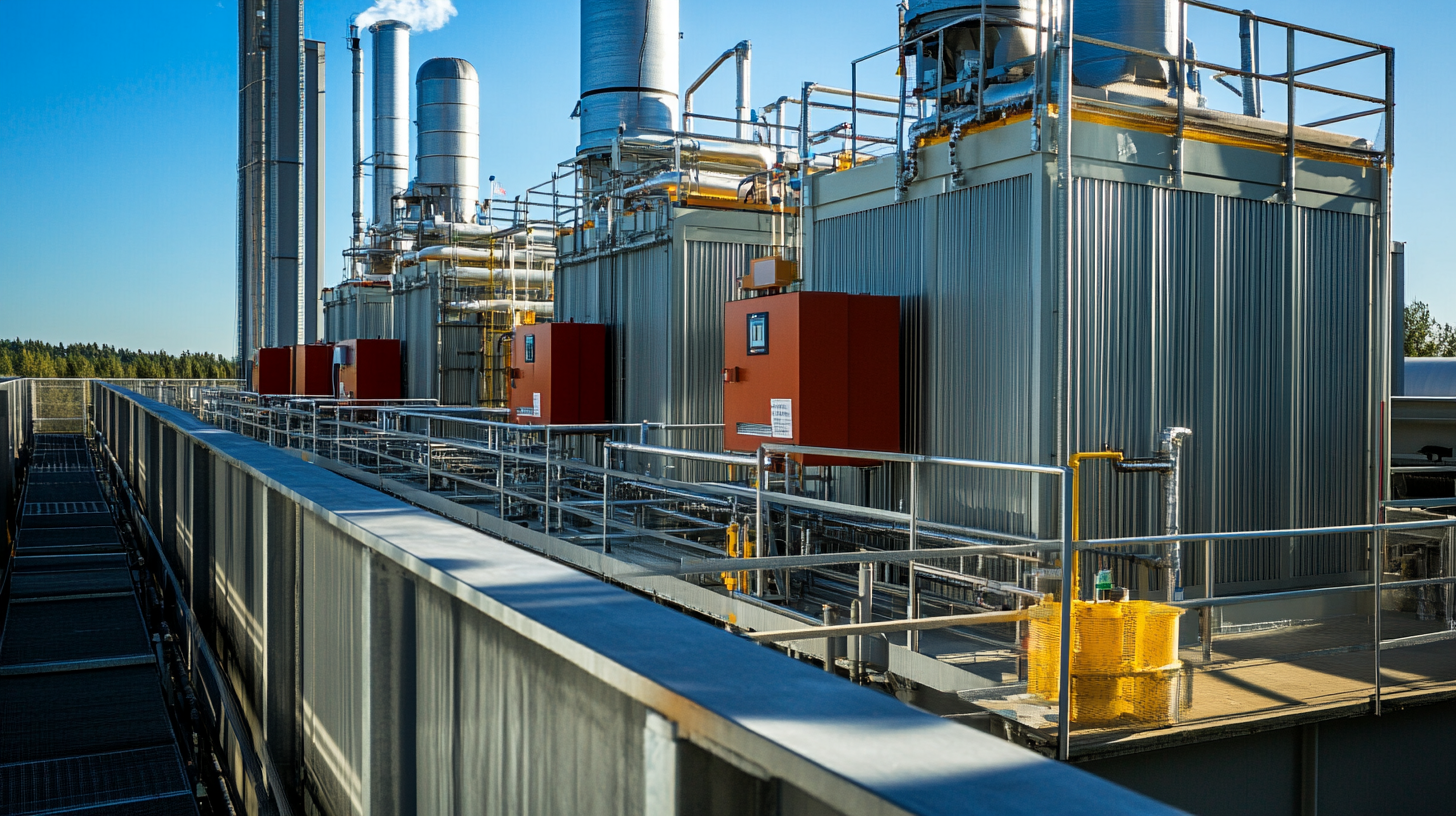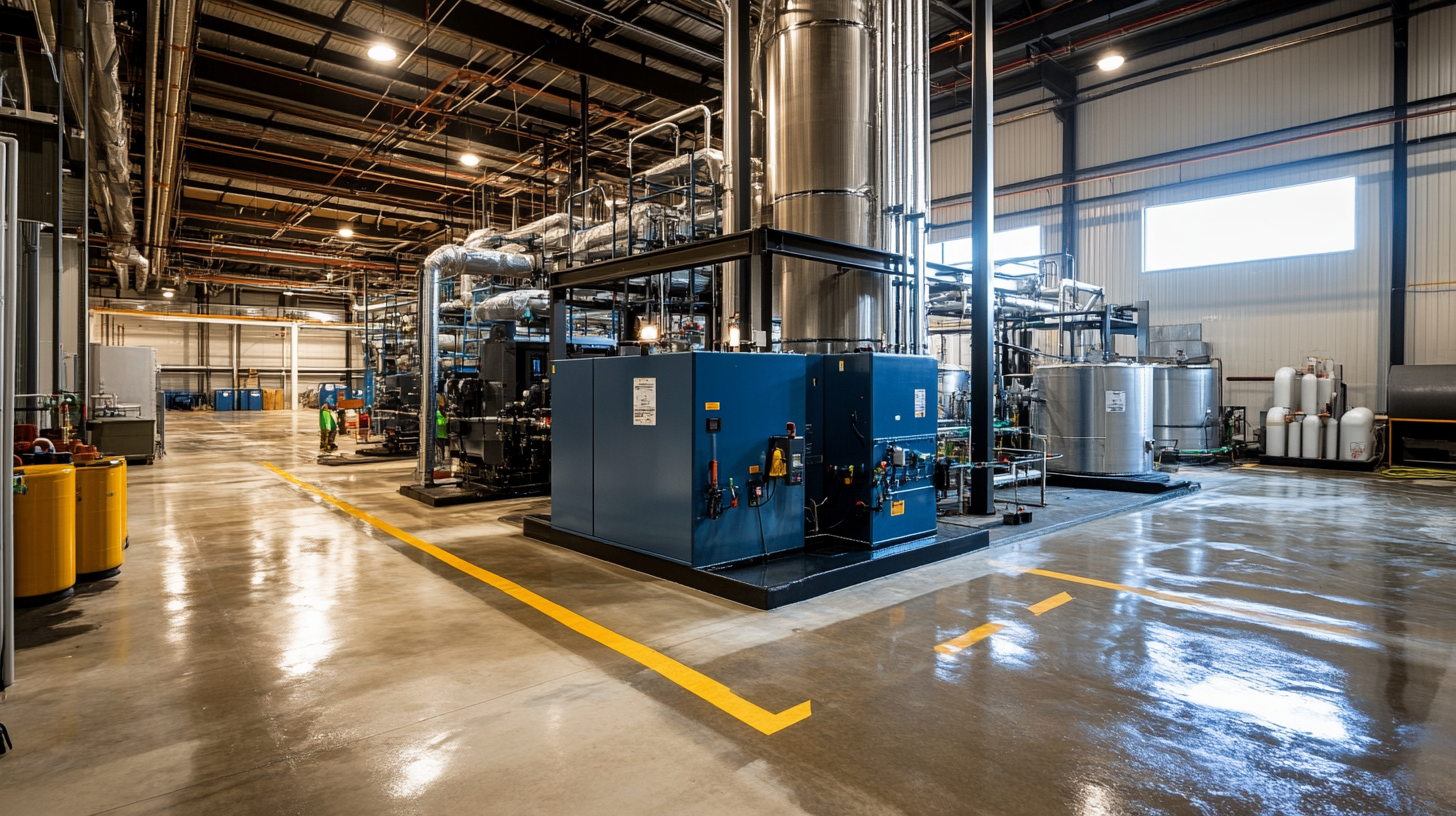Maximize Your Project Efficiency with Reliable Industrial Equipment Rental Solutions
In today's fast-paced industrial landscape, the demand for flexible and cost-effective solutions has led to a significant rise in the adoption of industrial equipment rental services. According to a recent report by IBISWorld, the industrial equipment rental industry is projected to reach a staggering $59 billion by 2025, driven by increasing project-based work and the need for companies to minimize upfront capital expenses. As organizations strive to enhance operational efficiency and reduce downtime, industrial equipment rental has emerged as a viable option that not only meets immediate project requirements but also allows for scalability and adaptability in ever-changing market conditions.
Moreover, the benefits of utilizing industrial equipment rental solutions extend beyond mere cost savings. A study by Grand View Research indicates that the use of rented equipment can lead to up to a 30% increase in project efficiency, as it enables businesses to access the latest technology and specialized machinery without the burden of ownership. By opting for rental solutions, companies can streamline their operations, focus on core competencies, and ultimately drive productivity gains. As we explore the strategies to maximize project efficiency through reliable industrial equipment rental, it becomes increasingly clear that investing in rental solutions is not just a financial decision, but a strategic move towards long-term operational success.

Understanding the Benefits of Industrial Equipment Rental for Project Efficiency
In today's fast-paced industrial landscape, the efficiency of a project often hinges on the quality and reliability of the equipment used. According to a report by the American Rental Association, the equipment rental market is projected to reach $60 billion by 2025, highlighting a significant shift in how companies approach project execution. By opting for industrial equipment rental solutions, businesses can enhance their operational efficiency without the heavy financial burden associated with purchasing expensive machinery. One of the key benefits of equipment rental is flexibility. Rental services provide access to the latest technology and equipment without long-term commitment. A study from the Equipment Leasing and Finance Association suggests that companies employing flexible rental terms can reduce project timelines by up to 30%. This adaptability allows businesses to scale their operations based on the specific demands of each project, ensuring they don't incur unnecessary costs or downtime. Additionally, renting equipment mitigates maintenance and storage concerns. According to a survey by McKinsey & Company, companies that leverage rental solutions can save as much as 25% on maintenance costs, as the rental provider is responsible for repairs and upkeep. This not only minimizes the hassle of equipment management but also allows teams to focus on core competencies, driving both productivity and profitability throughout the project lifecycle.

Key Factors to Consider When Choosing an Equipment Rental Provider
When selecting an equipment rental provider, it's crucial to consider several key factors to ensure that your project runs smoothly and efficiently. First and foremost, assess the provider's reputation within the industry. Look for reviews and testimonials from previous clients to gauge their reliability and quality of service. A well-established provider with a solid track record is more likely to offer equipment that is well-maintained and suited to your project needs.
Another important factor is the range of equipment available. A reputable rental company should have a diverse inventory that includes the latest technology and various types of machinery. This variety allows you to find the right tools without compromising on quality or efficiency. Additionally, ensure that the provider offers support services such as delivery, setup, and maintenance, which can save you time and reduce potential delays in your project timeline.
Pricing structures also play a significant role in your choice of rental provider. Transparency in pricing and a clear understanding of rental terms can prevent unexpected costs down the line. Don't hesitate to inquire about any additional fees, such as for delivery or insurance, to help you budget accurately. By carefully considering these factors, you can select an equipment rental provider that enhances your project's efficiency and success.

Essential Industrial Equipment for Enhanced Project Performance
In today's rapidly evolving industrial landscape, the emphasis on enhanced project performance has never been more crucial. As companies look to maximize efficiency and minimize downtime, reliable industrial equipment rental solutions have emerged as a strategic approach. By providing access to essential equipment without the considerable overhead of ownership, businesses can respond swiftly to project demands and improve operational flexibility.
A recent analysis highlights that in 2025, the chemical industry will prioritize innovation, sustainability, and resiliency, pinpointing a growing need for advanced industrial machinery that can meet these objectives. Investing in high-quality, well-maintained equipment can significantly bolster a project's capability to adapt to changing requirements while also contributing to sustainable practices. For instance, optimizing combustion performance in machinery, as detailed in a new case study, reveals how tailored equipment can enhance productivity and environmental outcomes—critical factors for today's conscientious manufacturers.
Moreover, the manufacturing sector is seeing a targeted push towards strengthening digital and data foundations to combat skill gaps and improve overall efficiency. As companies invest in modernizing their operations, having access to the latest industrial equipment becomes imperative. Equipment rental firms that offer cutting-edge technology enable organizations to keep pace with industry innovations without the liabilities tied to purchasing. This approach not only streamlines operations but also places businesses in a stronger position to capitalize on emerging market opportunities, particularly in sectors like battery production, where the demand for resilient and sustainable solutions continues to soar.
By focusing on the right equipment and rental strategies, industries can enhance project performance and navigate the complexities of 2025 with greater confidence and resourcefulness.

Best Practices for Maximizing the Value of Rented Equipment
Maximizing the value of rented industrial equipment requires strategic planning and adherence to best practices tailored to your project’s specific needs. According to a report by Allied Market Research, the global construction equipment rental market is projected to reach $80 billion by 2027, highlighting a growing trend among businesses to capitalize on rental solutions rather than outright purchases. This shift reflects a need for flexibility and cost-effectiveness, essential for optimizing project efficiency.
One of the most crucial best practices is to conduct rigorous research on rental companies and their offerings. Evaluating the condition and technology used in the equipment can significantly impact performance. A study from Grand View Research indicates that well-maintained equipment can boost productivity by up to 30%. Therefore, prioritize working with reputable rental services that provide comprehensive maintenance records and options for the latest models to ensure peak performance during your projects.
Furthermore, effective planning for equipment usage is paramount. According to a report by the Equipment Leasing and Finance Foundation, proper scheduling and coordination can reduce downtime by 20%. Developing a clear timeline and understanding your project's demands can help identify the right equipment, thus maximizing your investment. Keep in mind the importance of training personnel on the equipment’s operation, as knowledgeable operators can improve safety and efficiency, ultimately adding value to your rental experience.
Maintaining Project Flexibility Through Strategic Equipment Rentals
In today’s dynamic industrial landscape, maintaining project flexibility is paramount. Strategic equipment rentals serve as a vital solution for businesses aiming to adapt swiftly to changing project requirements and market conditions. According to a report from the Equipment Leasing and Finance Association (ELFA), the equipment rental industry has seen a growth rate of 4-5% annually, showing that organizations increasingly recognize the value of renting over purchasing. This trend illustrates a shift toward more agile business operations, allowing companies to deploy essential resources without the long-term commitment of buying.
Utilizing rental services not only enhances flexibility but also enables businesses to access the latest technology without significant capital expenditure. Research by the American Rental Association notes that 90% of construction companies that utilize rental equipment experience improved operational efficiency. By renting, businesses can quickly scale their equipment inventory to match project demands, ensuring they have the right tools on hand without overinvesting in machinery that may go unused in the long term.
Furthermore, strategic rentals can lead to better resource management and reduced downtime. A recent industry study highlighted that organizations focusing on rental solutions reported a 15% decrease in project delays due to equipment unavailability. By leveraging equipment rental partnerships, companies can tap into comprehensive support and maintenance services, allowing them to focus on core project execution while minimizing operational disruptions. This holistic approach provides an essential competitive edge in a marketplace where adaptability and efficiency are key.
